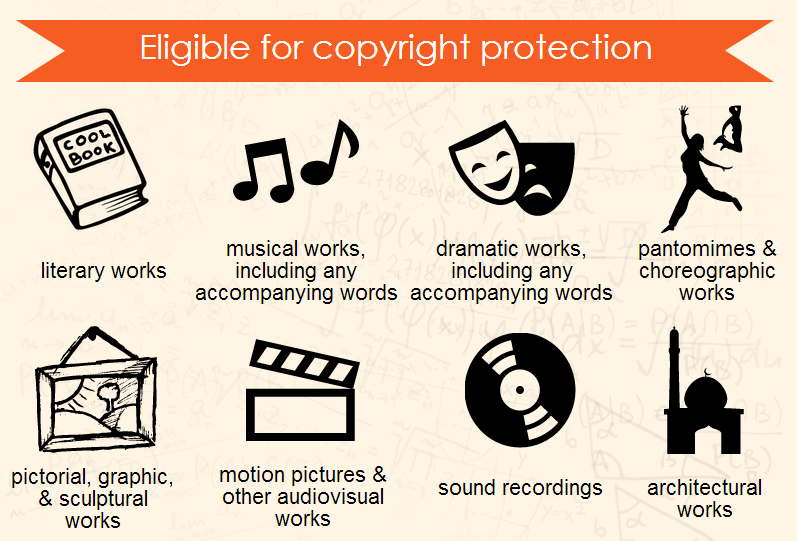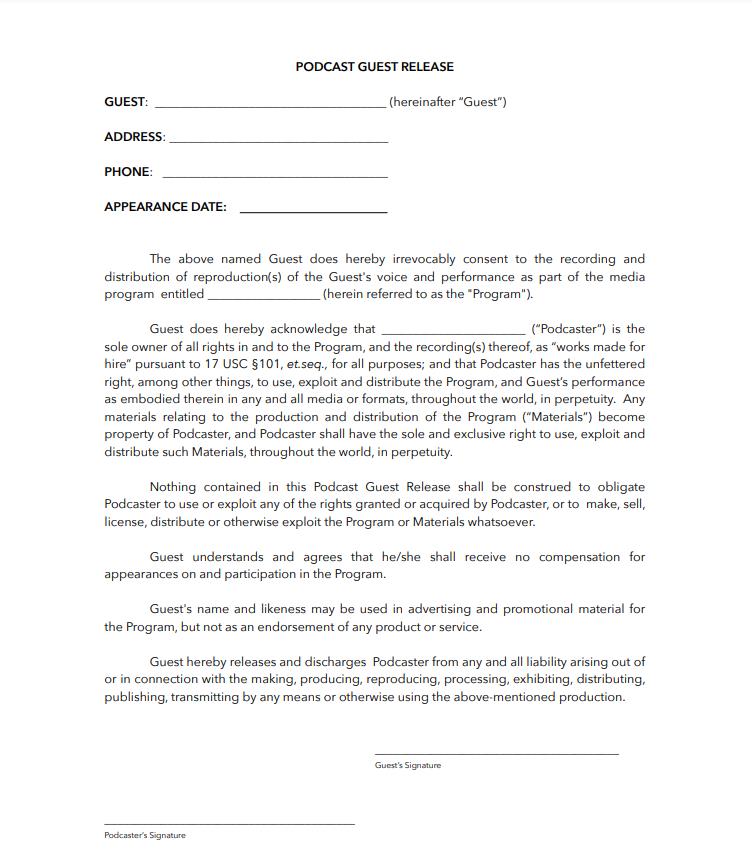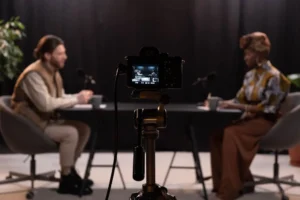If you interview guests for your podcast, there might come a time where a past guest objects to the content of an episode. Perhaps they feel that you edited them inappropriately. They might complain that your content misrepresents their current opinions. Or, after seeing the success of your show, they might start demanding payment.
These kinds of conflicts can put you in a difficult position, but they can be avoided with a simple document: a podcast release form.
Gordon Firemark, an entertainment attorney and producer and host of Entertainment Law Update (a podcast for artists and professionals in the entertainment industries) tells a story about a podcaster client whose guest demanded that an episode be taken down. When the podcaster refused, the guest filed a lawsuit for copyright infringement, unfair competition, invasion of privacy, tortious fraud, and other complaints. The issue caused the podcaster time, money, and a lot of stress.
It all could have been avoided if the podcaster had used a podcast release form before interviewing that guest. In this article, we explain what guest release forms are, how they work, and how to create your own.
(Before we jump into this topic, we want to be absolutely clear that we are not lawyers and you should not take this as legal advice. If you have any questions about your specific legal situation, we strongly recommend speaking to a lawyer.)
Action
Read to start your own podcast? Learn the nitty-gritty details of starting your own show in our comprehensive guide. Learn how to start a podcast.
What is a Podcast Release Form?
A podcast release form (or a guest release form) is a written document that maintains your control over your content. It ensures that you have documentation in case your guest ever claims your content as their own or tries to entangle you in a lawsuit.
Basically, when someone creates a “work,” such as an audio recording, a copyright is generated. That person owns the right to that work, which gives them authority to dictate who uses it and how it gets used.

If you record a solo podcast, the copyright holder is clear: it’s you. This means you have total authority as to how the content is edited, published, and promoted.
But when two people contribute to a recording (like in the case of an interview podcast), it’s not always clear as to who controls the copyright. If the guest isn’t happy with the final product, they might complain, send a demand letter, or – in worst cases – sue for copyright infringement or other issues. They might demand compensation for their trouble. In these cases, a judge would have to settle it for you.
The solution is to use a podcast release form. It’s a simple document that protects your content and makes sure you always have creative control. If a guest complains about the episode, a judge will say, “Sorry, but you gave him/her explicit permission.”
Plus, the release form also has the benefit of making the guest aware that you take content control seriously. They might be more careful with their words because they know you’ll be able to do as you please with them. This is a good thing for both parties.
When to Have a Guest Sign a Podcast Release Form
The release form should be signed before you record anything. Make it part of your onboarding package to the guest, perhaps when you send them the episode topics, outline, or questions.
You don’t have to send a paper form. Use a service like Jotform Sign, HelloSign, Paperform, DocuSign or PandaDoc to manage the form digitally. This way, the guest can sign and return it to you instantly without jumping through too many hoops.
If you force them to print, sign, scan, and send back, or use the ancient method of sending it through the mail, there’s a chance they won’t bother with the extra steps, especially if your show is young and wouldn’t give them much exposure anyway.
Alternative to a Guest Release Form: A Verbal Agreement
If you aren’t comfortable using a podcast release form (maybe you don’t want to bother your guests with signing and returning one), there’s one alternative: a verbal agreement.
A verbal agreement is simple. You just say everything that would be on a standard guest release form aloud at the beginning of the interview. Be absolutely clear that you are sole owner of the recording and have the authority to change it as you please. Ask the guest to agree to your terms aloud.
Here’s the most important part: Keep this recording somewhere safe! Obviously you shouldn’t publish the verbal agreement part with your final episode, but the original recording is evidence of your agreement, so store it somewhere in case you have to present it in the future.
Do You Always Need a Podcast Guest Release Form?
If you have guests on your show, a podcast release form is critical. We recommend them for every show. If you don’t, there’s a chance that a guest later objects to an episode and demands that you change or remove it. What happens if that is your most popular episode?
Do guests often object? No, it’s not common. Guests typically don’t say things they don’t want other people to hear. The most common complaint is something like, “Those words no longer represent my opinion.” Which is fair, after all. Sometimes people change their minds and don’t want to be judged by their past words. As your show becomes more popular, and is exposed to more people, any guests who have problems with the content become more likely to speak up.
If a guest objects to your content, reminding them that you have a podcast release form is usually all it takes to make the issue go away. They won’t be happy with you, but they’ll know that they gave you permission to use the content and will have to fight legally to revoke that privilege.
Having a release form doesn’t mean you can’t remove or change episodes. You may decide to remove an episode for good if the content no longer aligns with the guest’s current views. Or you might remove, re-edit, and re-publish an episode. You might choose to comply with a guest’s request or make changes on your own. A podcast release form just means you aren’t forced to take action.
Limitations of the Guest Release Form
It’s important to understand that a podcast release form isn’t a get-out-of-jail-free card. It doesn’t protect you from anything. And, depending on your behavior, it can be overturned in a court if a judge doesn’t think it’s applicable.
For instance, if you were to chop up every word of the recording and reorganize the words to make a guest say completely new sentences, your release form won’t stand up in court.
Nor will the form protect you if you start disparaging your guests with defamatory language. The release form grants you the right to use your guest’s spoken word as your own content. It does not give you license to say whatever you like.
What to Include in Your Podcast Guest Release Form
Fortunately, a podcast release form is not a long or complex document. Most are less than a page. You don’t have to be a lawyer to craft one, though it may help to have a legal expert weigh in. Your form should cover these basic points:
- You (the podcaster) have the right to edit the content as you see fit.
- You have permission to use the guest’s image, voice, and intellectual property in your content without seeking the guest’s approval before publishing.
- You can use the content at any point in the future and on any medium, not just your podcast. (For instance, you might upload it to YouTube or publish clips on social media.)
That’s the basic idea that works for most podcasters, but keep in mind that your needs may vary depending on your company structure and business model. For instance, if you are part of a podcast network, the network may require specific clauses. Your sponsors/advertisers may have requirements as well.
Podcast Release Form Template
The best place to get a podcast guest release form is your attorney. That’s the best way to get maximum protection. But if you don’t have the funds for that or don’t think a podcast release form is critical at the moment, you have a few other options.
Attorney Gordon Firemark offers a great podcast release form. Honestly, it’s the best one we’ve seen. It’s simple and concise so your guests can read it quickly without consulting an attorney, but it still protects you well. Download the podcast release form and modify it for your needs.

If you don’t like that version, here are a few other options:
- PDF Filler’s Talent Release Form
- LegalZoom Talent Release Form
- eForms Media Liability Release Form
- StudioBinder’s Actor Release Form (modified this for a podcast)
- Sample Templates’ database of template forms
- Sample Templates Release Forms (10 options)
Protect Your Podcast and Your Content
A podcast release form is a quick and simple way to protect your show and your content. It can save time, money, and stress down the road if a guest ever demands that you remove or edit their interview. It doesn’t take a lot of effort and most guests are happy to sign it.
Your podcast may be a little project right now, but who knows what the future holds. Protect your early content so it’s always available for your audience.




Hey, is this the case sometimes for music dj mix sets? When I go back, say a few weeks or months later to listen again and that particular past episode it’ll be missing.
And I mean not just archived, but missing, where the one earlier and one later will still be available.